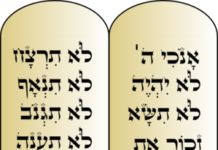“When the month of Adar arrives one must increase in joy”
This favorite quote and instruction is linked to the highlight of Adar; the joyous holiday of Purim.
And yet, never content to let well enough alone, I ask why Adar gets this directive and not any of the other months that contain joyous Holidays.
The month of Nissan has the Exodus, Kislev has Chanukah? Why is Purim and Adar so emphatically more joyous than those holidays?
A close side by side comparison of Purim and other Holidays further emphasizes the question. What is so joyous about Purim – we weren’t annihilated – that’s a good thing – yet we end up no better, maybe even worse than when the story began.
A little Purim refresher course
When the Book of Esther begins the Jews are flourishing in the Persian Empire – we have prominence in society – Mordechai is part of the King’s inner cabinet and the Jews are doing well.
When the story ends we are still flourishing in the Persian Empire – we have prominence in society – Mordechai is part of the King’s inner cabinet and the Jews are doing well – apparently nothing has changed. If someone would have slept through the whole event they wouldn’t notice much different from where we end up from where we began.
In fact the thwarted Haman threat created a new fear so frightening that Mordechai has been reduced in his position with the Sanhedrin to take a more focused role in government to protect against Achashverosh’s possible next “best friend” and any subsequent threats. (See the Rashi comment on Esther 10:3).
So; why is Purim so joyous that it extends its influence to the entire month creating a directive for everyone to increase in joy when Adar begins? And, while we are at it, since Purim is so joyous why do we have to be “instructed” to increase in our joy; shouldn’t that happen inevitably? Can joy be mandated?
Herein lies the essence of the message of this commandment – it is NOT the apparent joy of Purim that causes the month to be shaped by the increase in celebration; rather it is precisely the non-apparent Hand of Hashem that we are commanded to celebrate and rejoice.
Purim is about not being bowled over by Hashem’s Might and a Miraculous interference with the natural order of things. Purim is about finding Hashem when He is hidden – the Purim masks, the absence of Hashem’s name from the Megillah, all emphasize the need to seek Hashem – to pursue Him when He is not overwhelmingly obvious.
This is why we are commanded to be joyous. When Hashem is splitting seas and making one day’s worth of oil last eight days, we don’t need a commandment to be joyous, it occurs spontaneously. When Haman and Achashverosh seem to be calling the shots, when the best thing that happens to us is that we are not annihilated; thank you very much, we’re not reflexively joyous, relieved maybe, not joyous. That’s when the command comes in – that’s the time we need to be told to be joyous.
Purim is a Rabbinic Holiday – not contained in the Chumash. Purim did not occur in Eretz Yisroel, it happened in the land of our enemy yet our Sages saw fit to make it a Holiday, perhaps to convey this message. When G-d is obvious, when miracles release us from slavery, recapture our Temple, we don’t need to be told to be joyous. When Hashem is hidden, when we are foreigners and fearful, when we are surrounded by our enemies and appear one decree away from annihilation, that is when we need to make the conscious effort to be joyous, that’s when the Rabbanan, teach us to look for Hashem through joy, the increase in joy to counter the harsh circumstances around us.
So when Adar – a time of threat – enters, react with increased joy and watch the transformation from grief to joy and from mourning to a festive day (Esther 9:22) – A Freilichen Purim!!
Rabbi Baruch Epstein is the Rabbi of Congregation Bais Menachem and is Lubavitch Chabad of Illinois‘ Director of Community Outreach.







